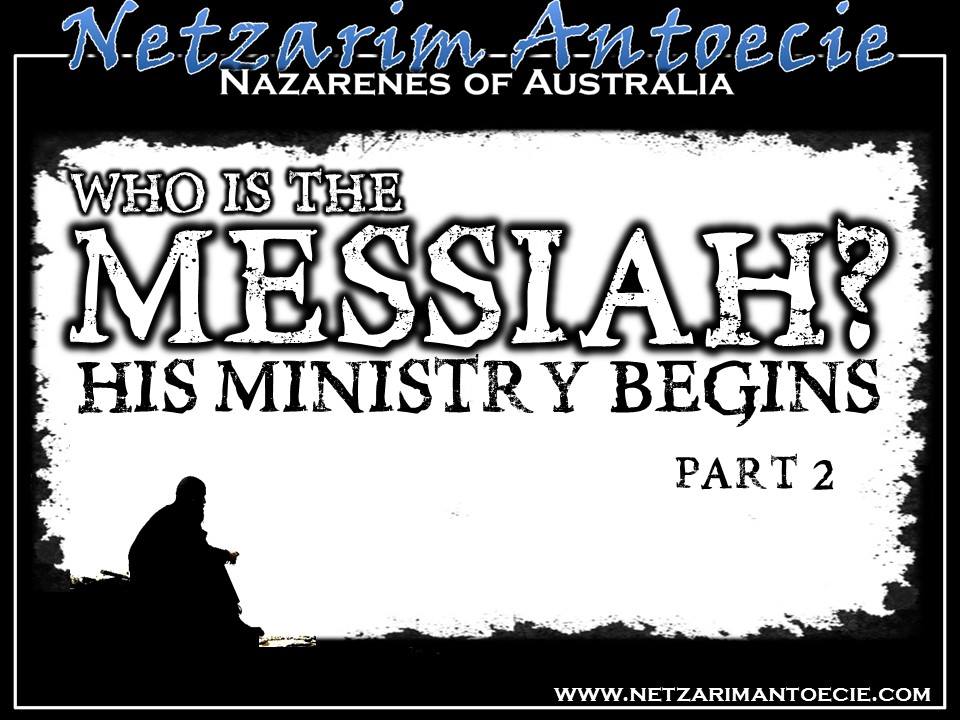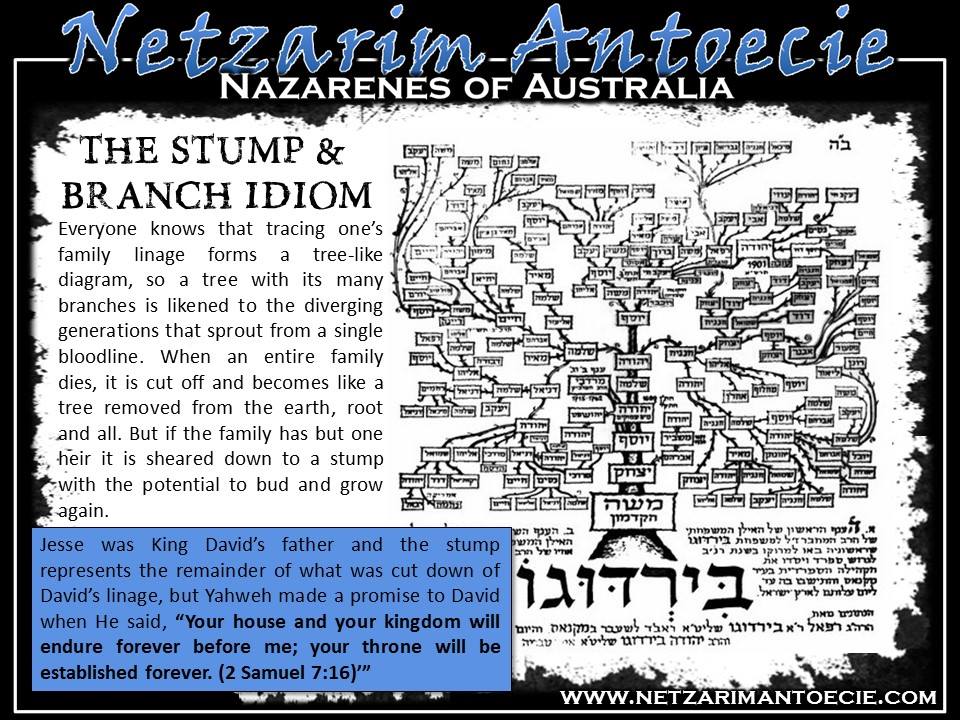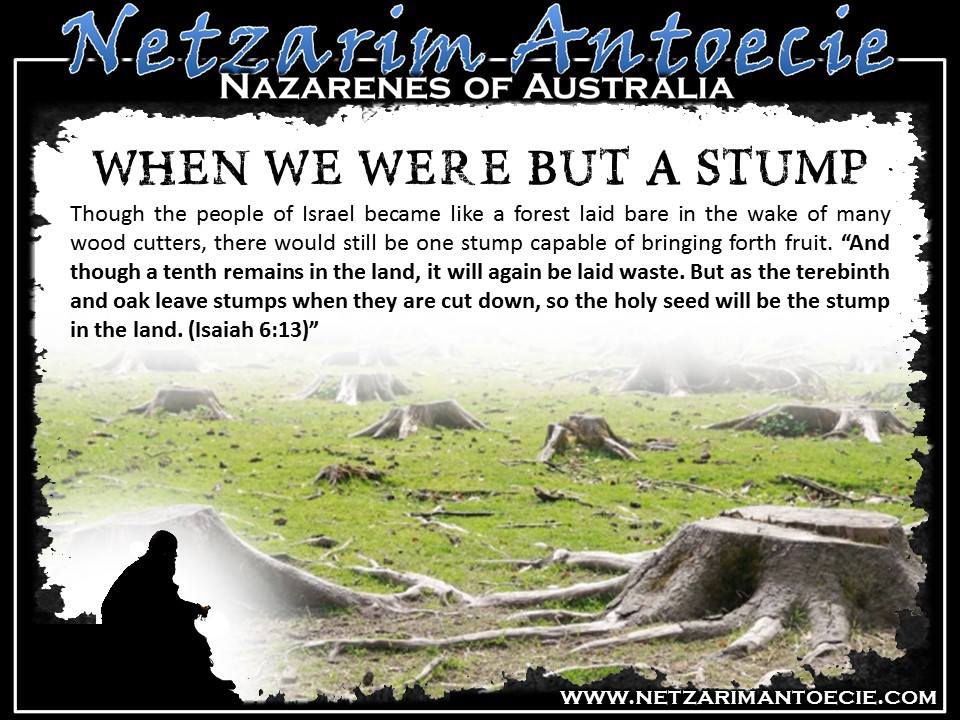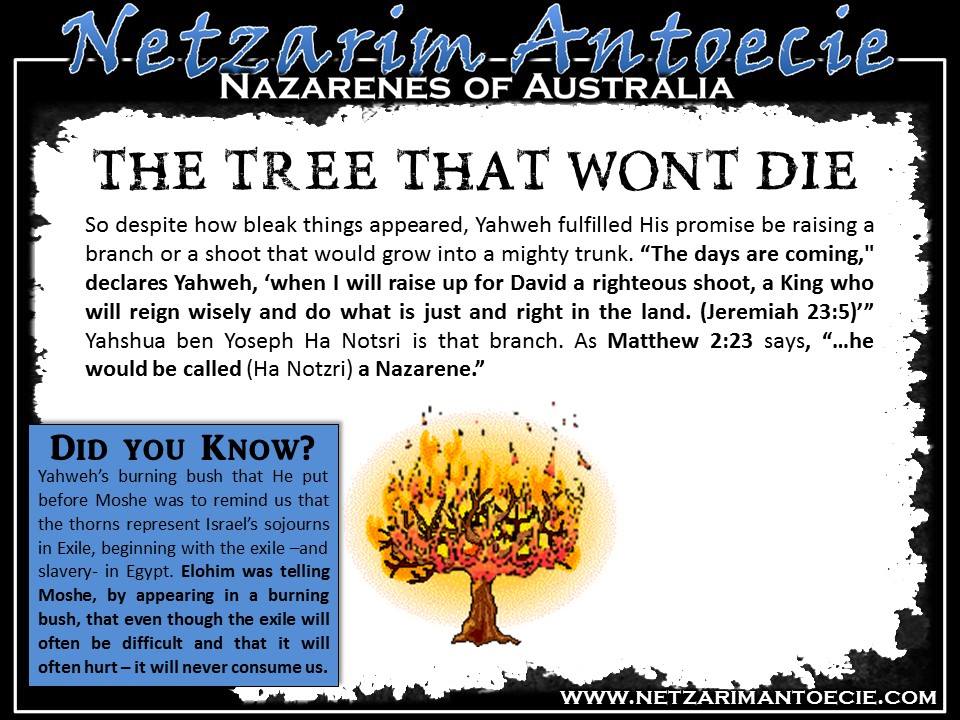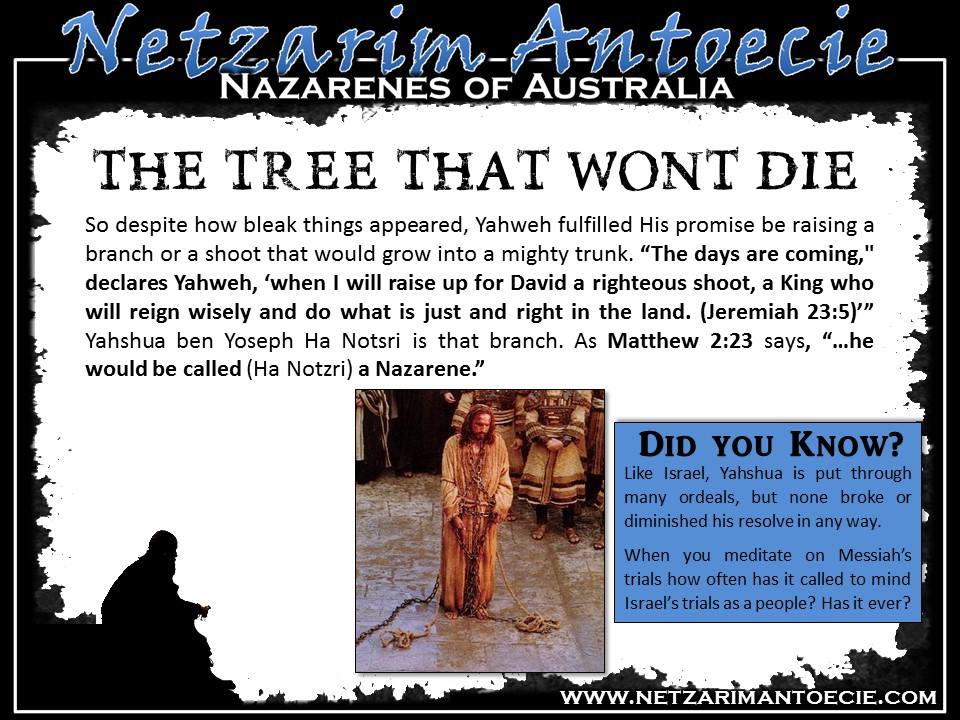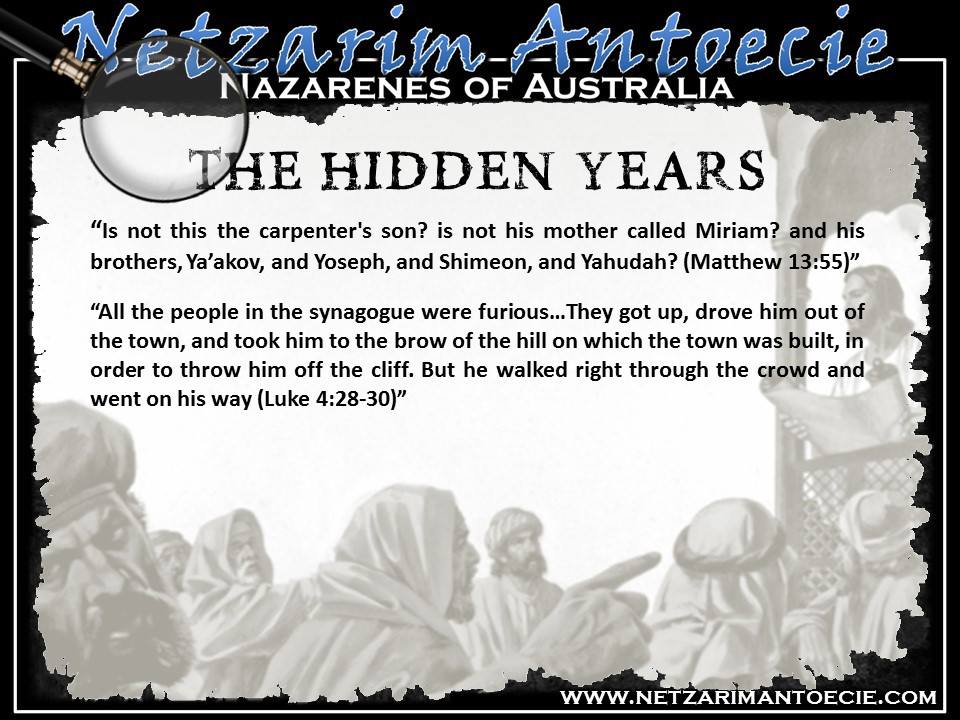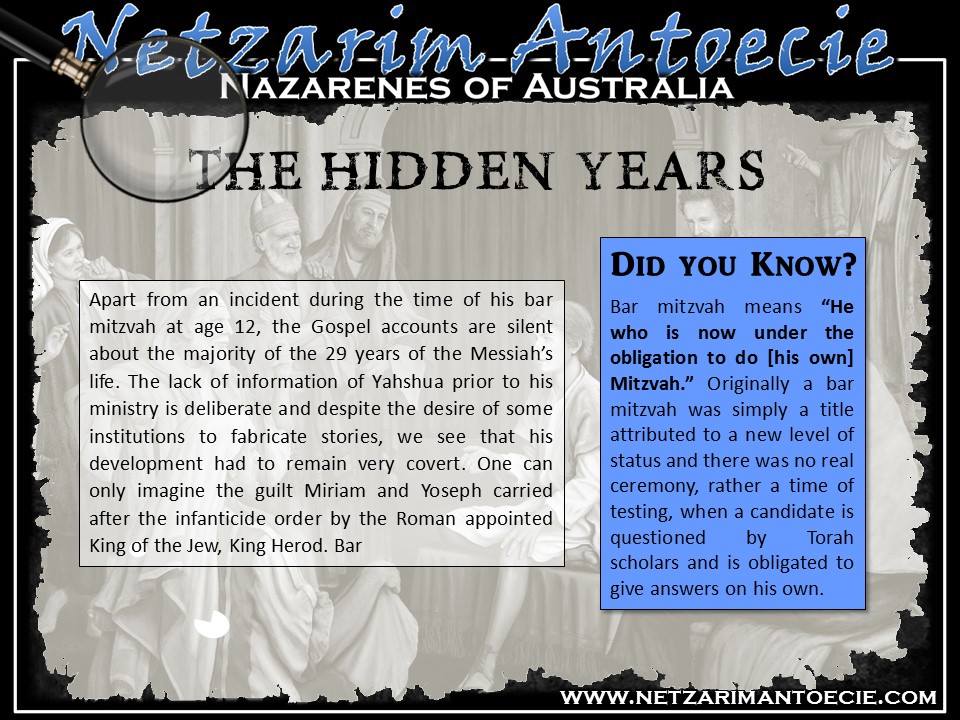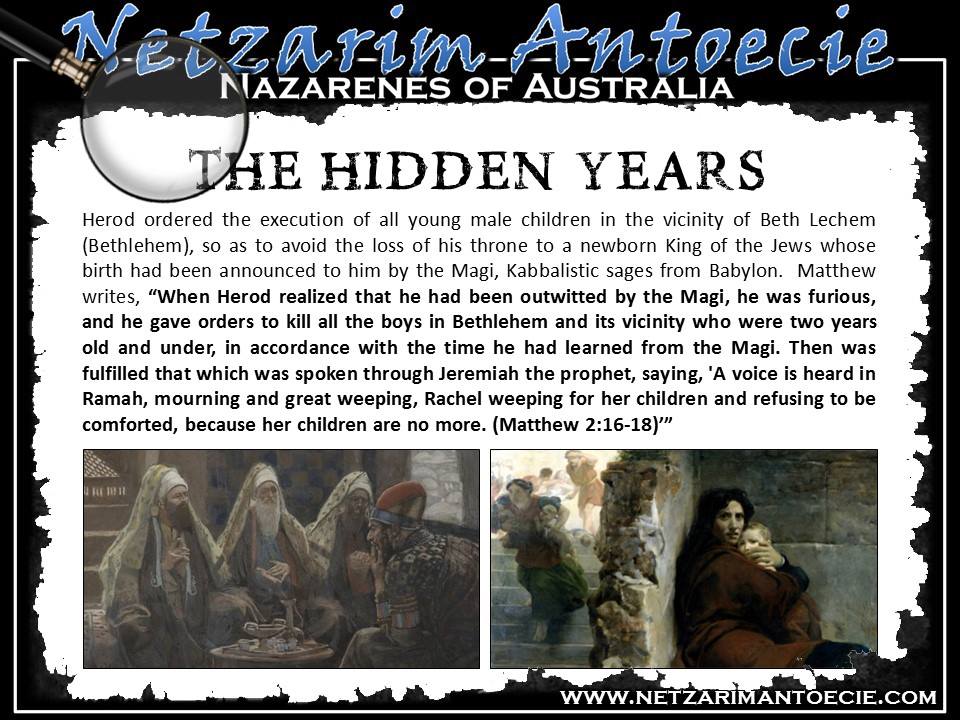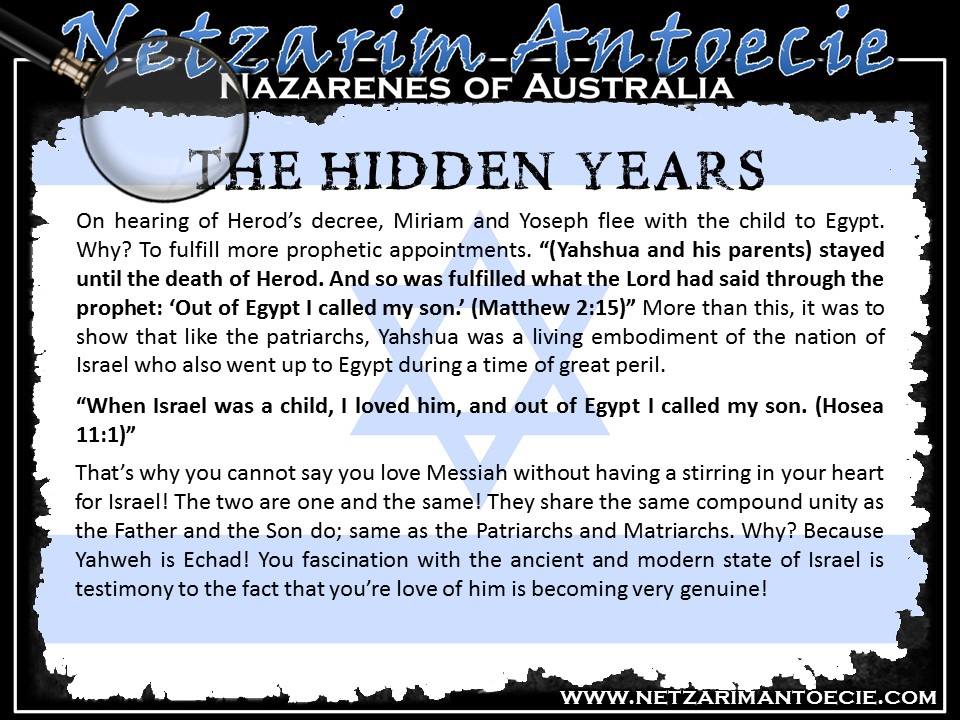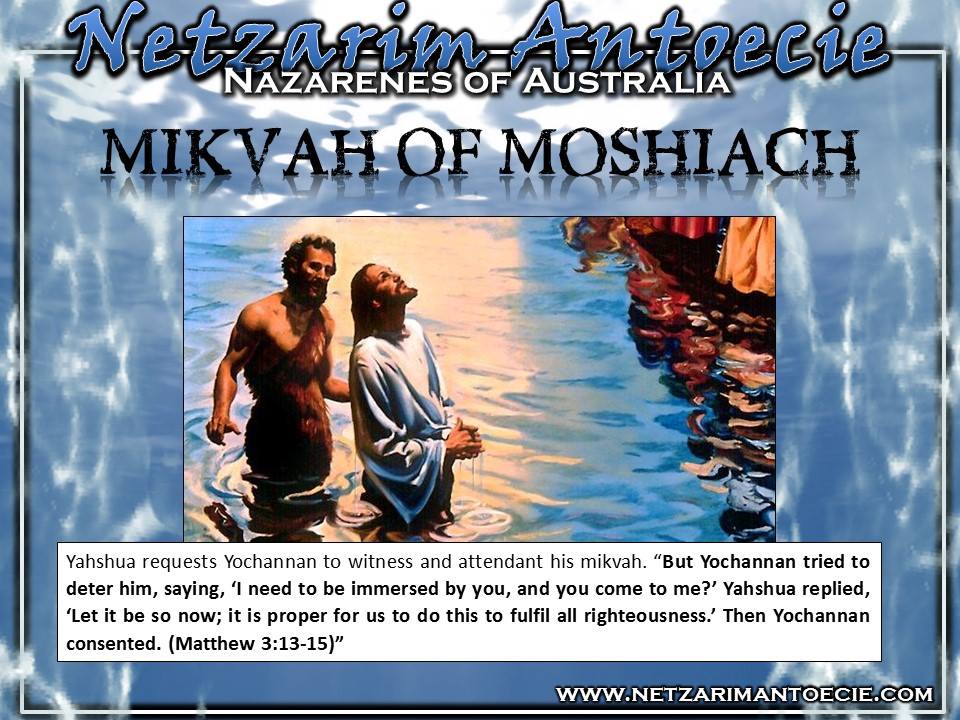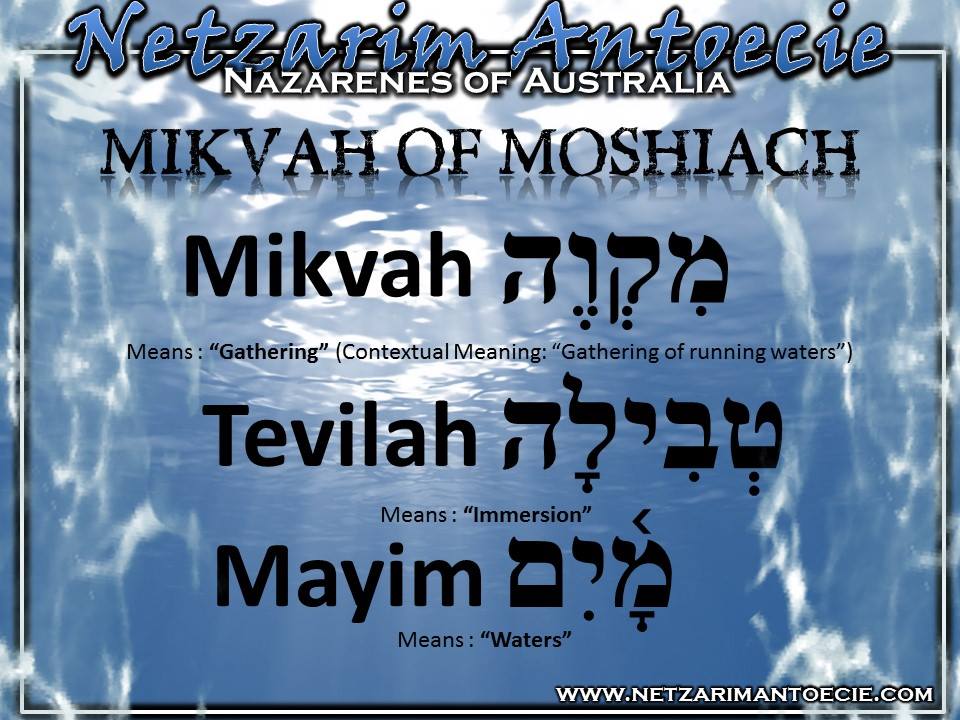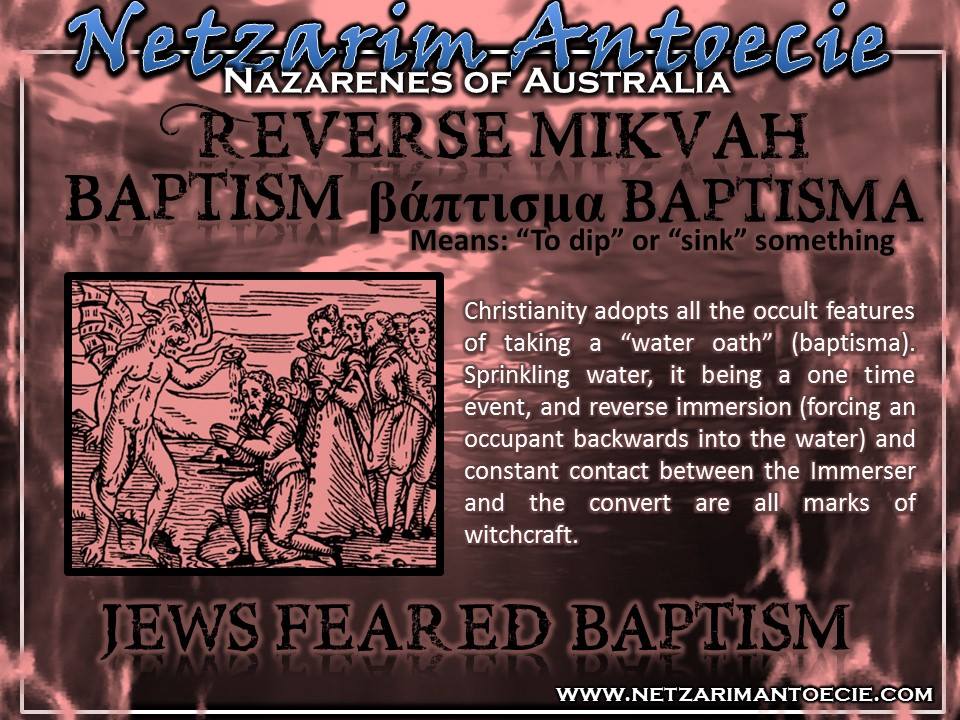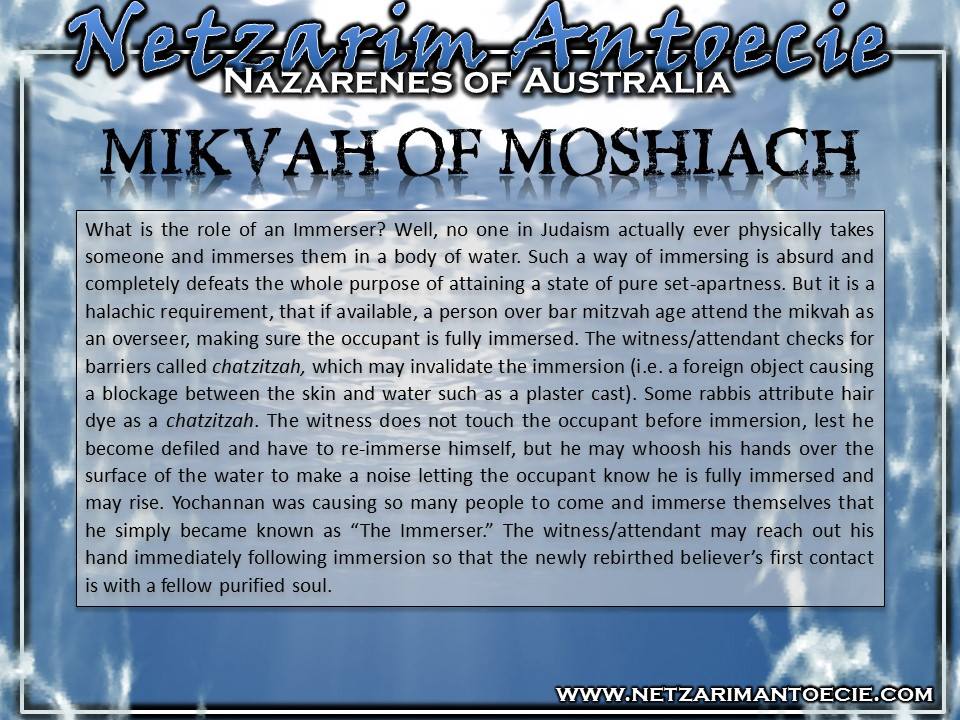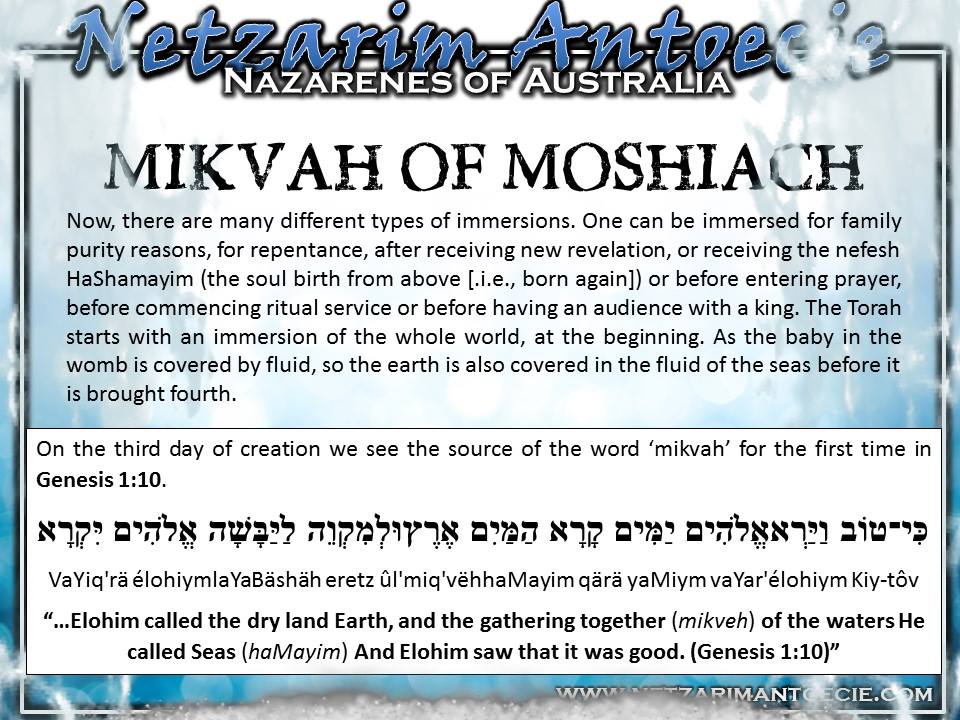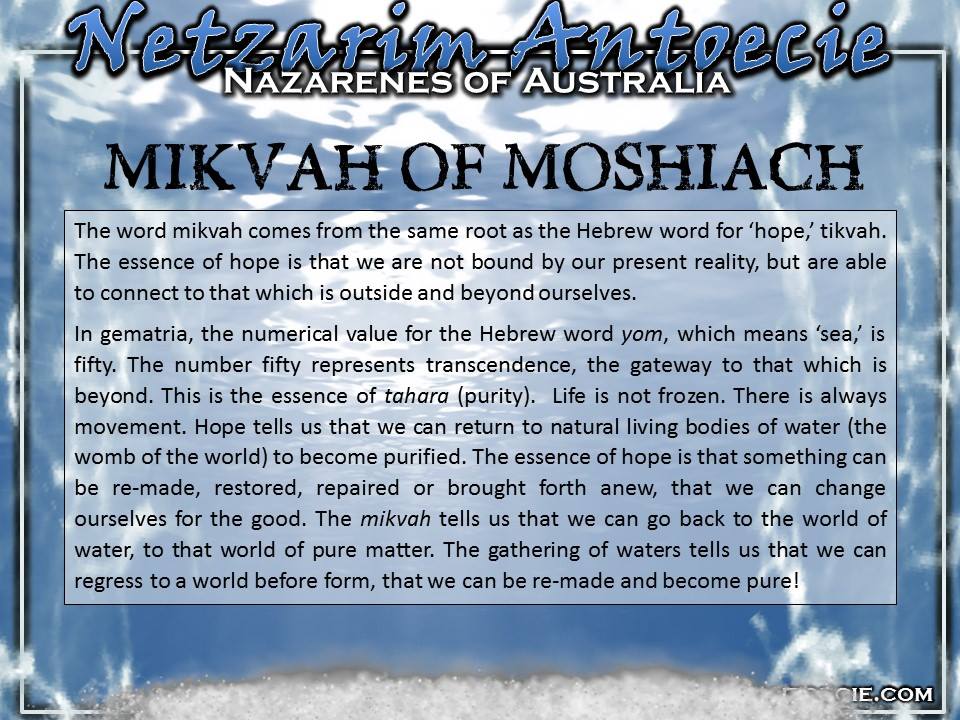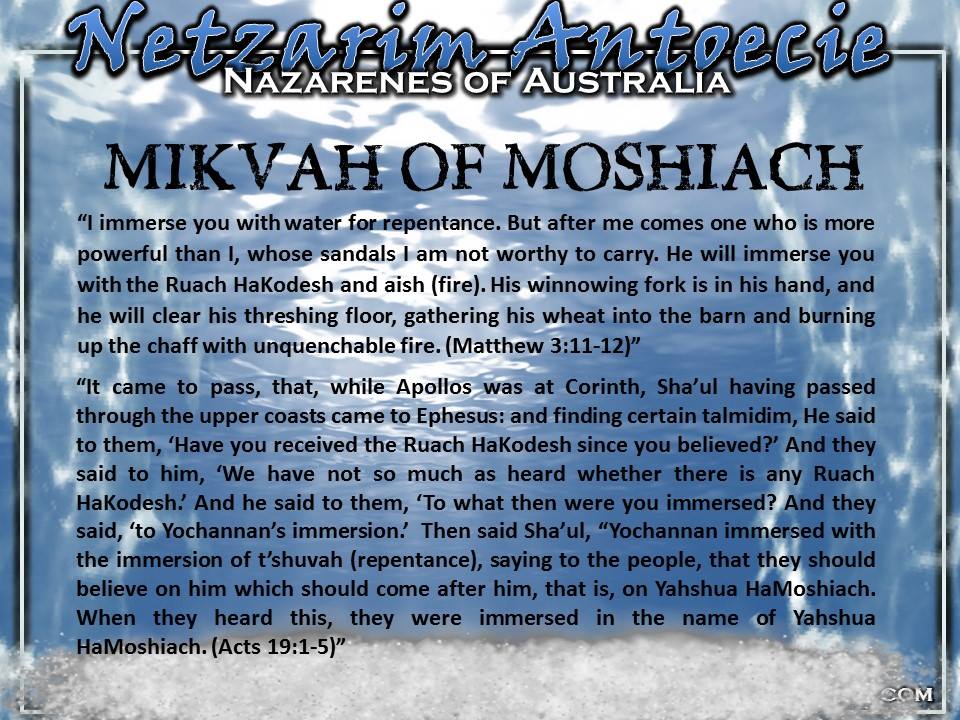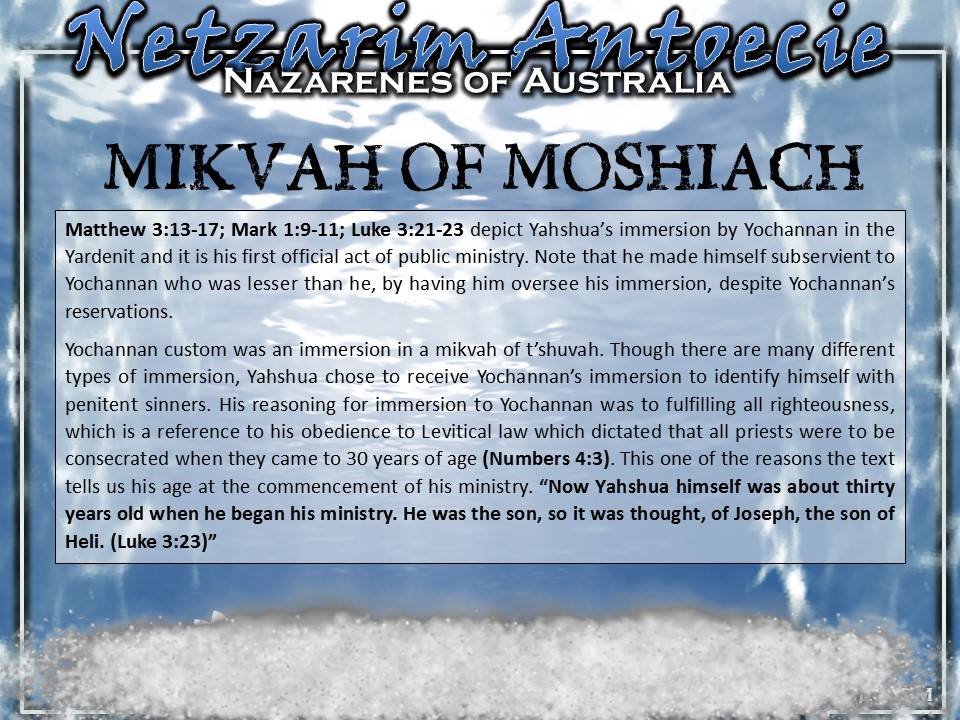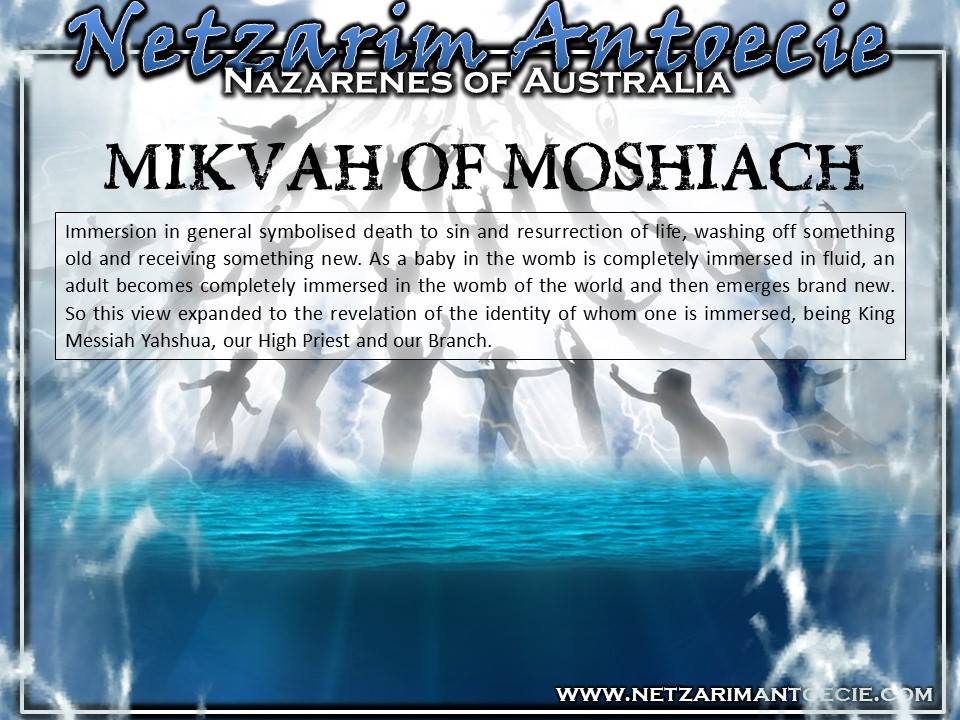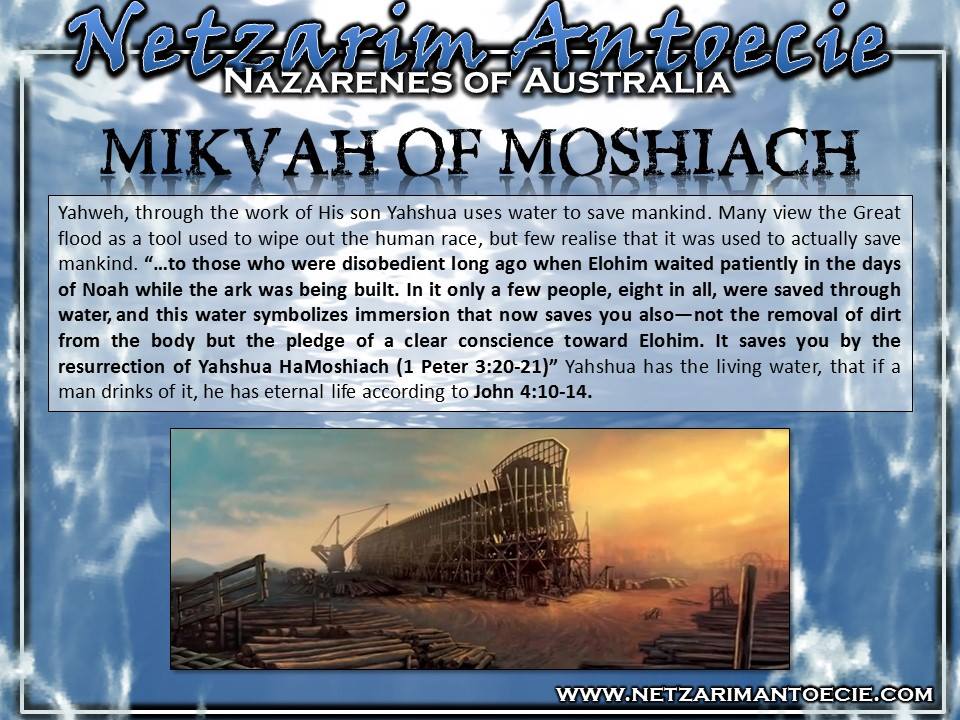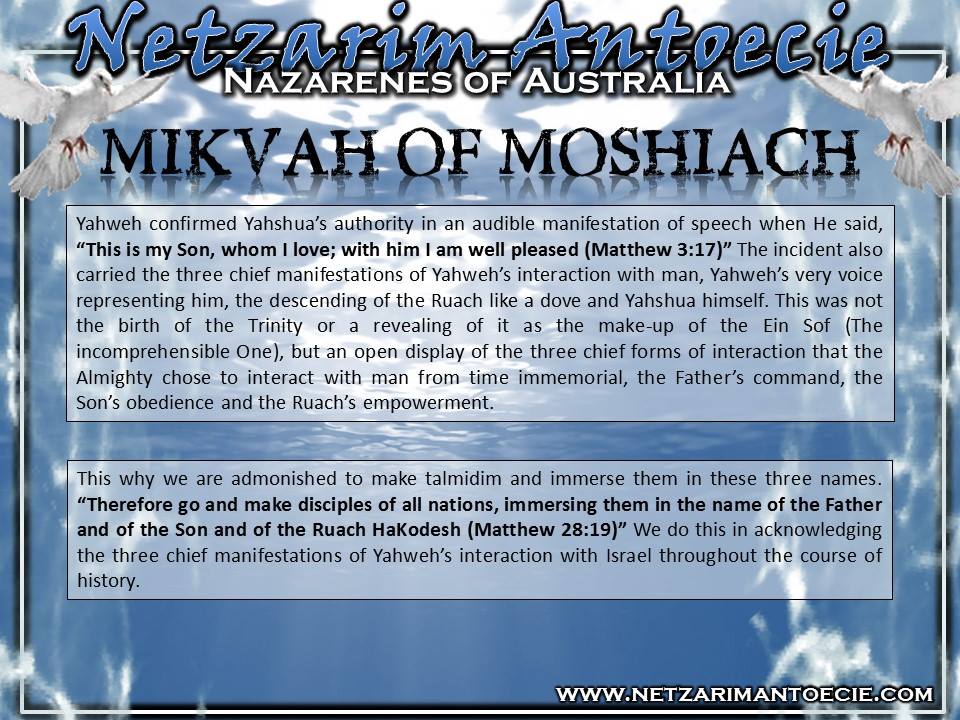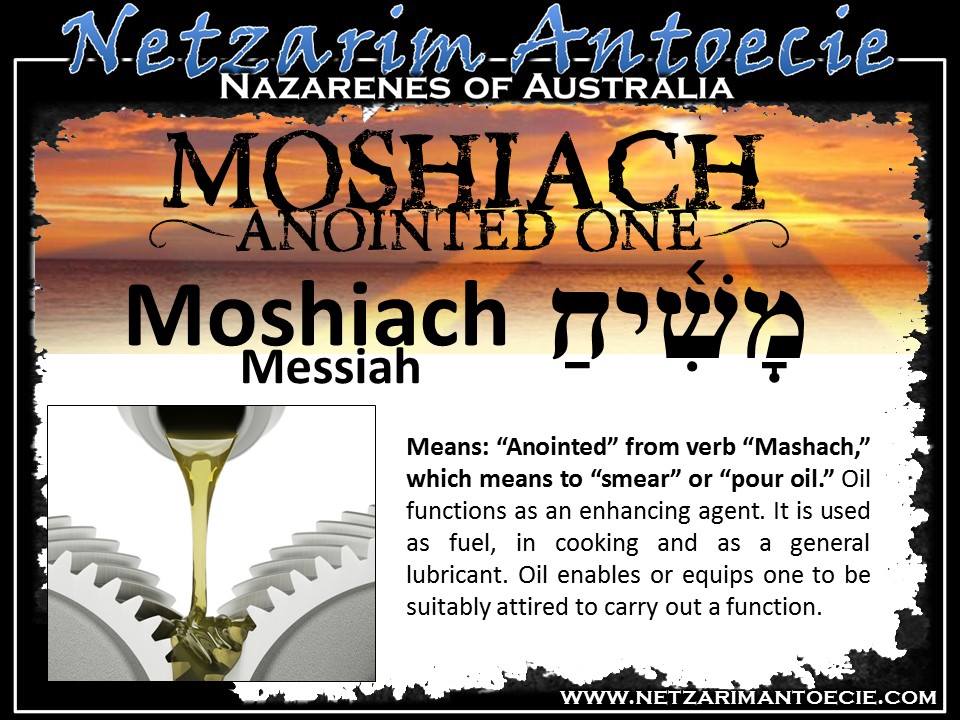Who is the Messiah? – Part 2
Introduction
(Slide)Last week we looked at how Messiah fulfilled the prophecy of the shoot that would rise from the stump of Jesse. וְיָצָא חֹטֶר, מִגֵּזַע יִשָׁי; וְנֵצֶר, מִשָּׁרָשָׁיו יִפְרֶה. ve·ya·tza cho·ter mig·ge·za yi·shai ve·ne·tzer mi·sha·ra·shav yif·reh.
“There shall come forth a shoot from the stump of Jesse, And a branch shall grow out of his roots. (Isaiah 11:1)” (Slide) Everyone knows that tracing one’s family linage forms a tree-like diagram, so a tree with its many branches is likened to the diverging generations that sprout from a single bloodline. When an entire family dies, it is cut off and becomes like a tree removed from the earth root and all. But if the family has but one heir it is sheared down to a stump with the potential to bud and grow again.
Jesse was King David’s father and the stump represents the remainder of what was cut down of David’s linage, but Yahweh made a promise to David when He said, “Your house and your kingdom will endure forever before me; your throne will be established forever. (2 Samuel 7:16) ’” (Slide) Though the people of Israel became like a forest laid bare in the wake of many wood cutters, there would still be one stump capable of bringing forth fruit. “And though a tenth remains in the land, it will again be laid waste. But as the terebinth and oak leave stumps when they are cut down, so the holy seed will be the stump in the land. (Isaiah 6:13)” (Slide) So despite how bleak things appeared, Yahweh fulfilled His promise be raising a branch or a shoot that would grow into a mighty trunk. “The days are coming," declares Yahweh, ‘when I will raise up for David a righteous shoot, a King who will reign wisely and do what is just and right in the land. (Jeremiah 23:5)’” Yahshua ben Yoseph Ha Notsri is that branch. As Matthew 2:23 says, “…he would be called (Ha Notzri) a Nazarene.”
Yahweh’s burning bush that he put before Moshe is to remind us that the thorns represent Israel’s sojourns in Exile, beginning with the exile –and slavery- in Egypt. Elohim was telling Moshe, by appearing in a burning bush, that even though the exile will often be difficult and that it will often hurt – it will never consume us.
(Slide) Like Israel, Yahshua is put through many ordeals, but none broke or diminished his resolve in any way.
When you meditate on Messiah’s trials how often has it called to mind Israel’s trials as a people? Has it ever?
(Slide)
We also found in last week’s teaching that Yahshua had drawn very little attention to himself during his childhood, transition into adolescence and then into a man. We found this out due to the reaction of his own townspeople. “Is not this the carpenter's son? is not his mother called Miriam? and his brothers, Ya’akov, and Yoseph, and Shimeon, and Yahudah? (Matthew 13:55)”
Messiah’s concealment was so effective that his own townspeople took offence to the gap of their uninteresting perception of him and the wisdom he had begun to share, that upon hearing a subtle rebuke on their lack of faith, they almost killed him. “All the people in the synagogue were furious…They got up, drove him out of the town, and took him to the brow of the hill on which the town was built, in order to throw him off the cliff. But he walked right through the crowd and went on his way. (Luke 4:28-30)”
(Slide)
Apart from an incident during the time of his bar mitzvah at age 12, the Gospel accounts are silent about the majority of the 29 years of the Messiah’s life. The lack of information of Yahshua prior to his ministry is deliberate and despite the desire of some institutions to fabricate stories, we see that his development had to remain very covert. One can only imagine the guilt Miriam and Yoseph carried after the infanticide order by the Roman appointed King of the Jew, King Herod.
(Slide)
Herod ordered the execution of all young male children in the vicinity of Beth Lechem (Bethlehem), so as to avoid the loss of his throne to a newborn King of the Jews whose birth had been announced to him by the Magi, Kabbalistic sages from Babylon. Matthew writes, “When Herod realized that he had been outwitted by the Magi, he was furious, and he gave orders to kill all the boys in Bethlehem and its vicinity who were two years old and under, in accordance with the time he had learned from the Magi. Then was fulfilled that which was spoken through Jeremiah the prophet, saying, 'A voice is heard in Ramah, mourning and great weeping, Rachel weeping for her children and refusing to be comforted, because her children are no more. (Matthew 2:16-18)’”
(Slide)
On hearing of Herod’s decree, Miriam and Yoseph flee with the child to Egypt. Why? To fulfill more prophetic appointments. “(Yahshua and his parents) stayed until the death of Herod. And so was fulfilled what the Lord had said through the prophet: ‘Out of Egypt I called my son.’ (Matthew 2:15)” More than this, it was to show that like the patriarchs, Yahshua was a living embodiment of the nation of Israel who also went up to Egypt during a time of great peril. (Click) “When Israel was a child, I loved him, and out of Egypt I called my son. (Hosea 11:1)” (Click) That’s why you cannot say you love Messiah without having a stirring in your heart for Israel! The two are one and the same! They share the same compound unity as the Father and the Son do; Same as the Patriarchs and Matriarchs. Why? Because Yahweh is Echad! You fascination with the ancient and modern state of Israel is testimony to the fact that you’re love of him is becoming very genuine!
Yahshua’s Immersion
(Slide) Coming from Notzri (Nazareth) in the Galil (Galilee), Yahshua makes his way to the Yardenit (The Jordan River), where Yochannan ben Zakkai (John the son of Zechariah) is preaching and immersing followers. His immersion is such a central theme to his teaching that he becomes known as Yochannan HaMatbil (John the Immerser). Yahshua said of Yochannan that there was no greater man born of a woman (Luke 7:28). This was a man filled with the Spirit from the womb, eating wild locus and honey.
Around this time at Bethany, Kohanim (Priests), L’vi’im (Levites) and some P’rushim (Pharisees) are sent by the Sanhedrin to question Yochannan as to who he was. He denies being Moshiach, Eliyah or a Navi (prophet), only saying that he is a forerunner, the voice of one crying in the wilderness (Isaiah 40:3). The following day Yochannan sees Yahshua walking toward him and says, “Look, Elohim’s lamb! The one who is taking away the sin of the world! (John 1:29)” Yochannan then reveals the whole meaning behind his ministry and its emphasis on receiving mikvah to make the Moshiach known to Yisrael.
(Slide) Yahshua requests Yochannan to witness and attendant his mikvah. “But Yochannan tried to deter him, saying, ‘I need to be immersed by you, and you come to me?’ Yahshua replied, ‘Let it be so now; it is proper for us to do this to fulfil all righteousness.’ Then Yochannan consented. (Matthew 3:13-15)”
(Slide) Before we go any further, it’s important to get our terminologies correct. One of the ongoing things that underpin this type of teaching is rectifying years of deliberate mistranslation and poor scholarship. The term “mikvah” doesn’t mean baptism. Mikvah means “gathering,” in the context of the gathering of many waters, while baptism is an ecclesiastical term, meaning, it’s a term that creates as artificial religious environment. The Hebrew word for “immersion” is tavilah.
(Slide) What is the role of an Immerser? Well, no one in Judaism actually ever physically takes someone and immerses them in a body of water. Such a way of immersing is absurd and completely defeats the whole purpose of attaining a state of pure set-apartness. But it is a halachic requirement, that if available, a person over bar mitzvah age attend the mikvah as an overseer, making sure the occupant is fully immersed. The witness/attendant checks for barriers called chatzitzah, which may invalidate the immersion (i.e. a foreign object causing a blockage between the skin and water such as a plaster cast). Some rabbis attribute hair dye as a chatzitzah. The witness does not touch the occupant before immersion, lest he become defiled and have to re-immerse himself, but he may whoosh his hands over the surface of the water to make a noise letting the occupant know he is fully immersed and may rise.
[Not on Slide] An occupant engaged in mikvah, immerses three times because the word “mikvah” appears three times in the Torah. On the third time, the occupant goes into a foetal position and springs out of the water. Immersion was accompanied by exhortations and benedictions (Maimonides Hilkh. Milah iii.4; Hilkh. Iss, Biah Xiv .6). A convert would reaffirm his acceptance of the Torah by declaring, "I will do and I will hear" which was a phrase from the oath that was originally taken by the priests not to forsake the Torah (Deuteronomy 29:9- 14).
Yochannan was causing so many people to come and immerse themselves that he simply became known as “The Immerser.” The witness/attendant may reach out his hand immediately following immersion so that the newly rebirthed believer’s first contact is with a fellow purified soul.
The Power of the Mikvah
(Slide) Now, there are many different types of immersions. One can be immersed for family purity reasons, for repentance, after receiving new revelation, or receiving the nefesh HaShamayim (the soul birth from above [.i.e., born again]) or before entering prayer, before commencing ritual service or before having an audience with a king. The Torah starts with an immersion of the whole world, at the beginning. As the baby in the womb is covered by fluid, so the earth is also covered in the fluid of the seas before it is brought fourth.
On the third day of creation we see the source of the word ‘mikvah’ for the first time in Genesis 1:10.
יִּקְרָא אֱלֹהִים לַיַּבָּשָׁה אֶרֶץוּלְמִקְוֵה הַמַּיִם קָרָא יַמִּים וַיַּרְאאֱלֹהִים כִּי־טוֹב
VaYiq'rä élohiymlaYaBäshäh eretz ûl'miq'vëhhaMayim qärä yaMiym vaYar'élohiym Kiy-tôv
“…Elohim called the dry land Earth, and the gathering together (mikveh) of the waters He called Seas (haMayim) And Elohim saw that it was good. (Genesis 1:10)”
(Slide) The word mikvah comes from the same root as the Hebrew word for ‘hope,’ tikvah. The essence of hope is that we are not bound by our present reality, but are able to connect to that which is outside and beyond ourselves.
In gematria, the numerical value for the Hebrew word yom, which means ‘sea,’ is fifty. The number fifty represents transcendence, the gateway to that which is beyond. This is the essence of tahara (purity). Life is not frozen. There is always movement. Hope tells us that we can return to natural living bodies of water (the womb of the world) to become purified. The essence of hope is that something can be re-made, restored, repaired or brought forth anew, that we can change ourselves for the good. The mikvah tells us that we can go back to the world of water, to that world of pure matter. The gathering of waters tells us that we can regress to a world before form, that we can be re-made and become pure!
Immersion by Water and Fire
Yochannan’s immersion was one of repentance with water, but Yahshua’s immersion takes away sin and empowers one with the onset of the Ruach HaKodesh, a gift from above. (Slide) “I immerse you with water for repentance. But after me comes one who is more powerful than I, whose sandals I am not worthy to carry. He will immerse you with the Ruach HaKodesh and aish (fire). His winnowing fork is in his hand, and he will clear his threshing floor, gathering his wheat into the barn and burning up the chaff with unquenchable fire. (Matthew 3:11-12)”
Sha’ul HaShliach (The Apostle Paul) comes across some disciples of Yochannan during his ministry in Corinth. (Click) “It came to pass, that, while Apollos was at Corinth, Sha’ul having passed through the upper coasts came to Ephesus: and finding certain talmidim, He said to them, ‘Have you received the Ruach HaKodesh since you believed?’ And they said to him, ‘We have not so much as heard whether there is any Ruach HaKodesh.’ And he said to them, ‘To what then were you immersed? And they said, ‘to Yochannan’s immersion.’ Then said Sha’ul, “Yochannan immersed with the immersion of t’shuvah (repentance), saying to the people, that they should believe on him which should come after him, that is, on Yahshua HaMoshiach. When they heard this, they were immersed in the name of Yahshua HaMoshiach. (Acts 19:1-5)”
Yochannan’s immersion removed sin, but Yahshua’s immersion removes sin and empowers the individual to be a witness.
(Slide) Matthew 3:13-17; Mark 1:9-11; Luke 3:21-23 depict Yahshua’s immersion by Yochannan in the Yardenit and it is his first official act of public ministry. Note that he made himself subservient to Yochannan who was lesser than he, by having him oversee his immersion, despite Yochannan’s reservations.
Yochannan custom was an immersion in a mikvah of t’shuvah. Though there are many different types of immersion, Yahshua chose to receive Yochannan’s immersion to identify himself with penitent sinners. His reasoning for immersion to Yochannan was to fulfilling all righteousness, which is a reference to his obedience to Levitical law which dictated that all priests were to be consecrated when they came to 30 years of age (Numbers 4:3). This one of the reasons the text tells us his age at the commencement of his ministry. “Now Yahshua himself was about thirty years old when he began his ministry. He was the son, so it was thought, of Joseph, the son of Heli. (Luke 3:23)”
(Slide) Immersion in general symbolised death to sin and resurrection of life, washing off something old and receiving something new. As a baby in the womb is completely immersed in fluid, an adult becomes completely immersed in the womb of the world and then emerges brand new. So this view expanded to the revelation of the identity of whom one is immersed, being Messiah Yahshua.
(Slide) Yahweh, through the work of His son Yahshua uses water to save mankind. Many view the Great flood as a tool used to wipe out the human race, but few realise that it was used to actually save mankind. “…to those who were disobedient long ago when Elohim waited patiently in the days of Noah while the ark was being built. In it only a few people, eight in all, were saved through water, and this water symbolizes immersion that now saves you also—not the removal of dirt from the body but the pledge of a clear conscience toward Elohim. It saves you by the resurrection of Yahshua HaMoshiach (1 Peter 3:20-21)” Yahshua has the living water, that if a man drinks of it, he has eternal life according to John 4:10-14.
(Slide) Yahweh confirmed Yahshua’s authority in an audible manifestation of speech when He said, “This is my Son, whom I love; with him I am well pleased (Matthew 3:17)” The incident also carried the three chief manifestations of Yahweh’s interaction with man, Yahweh’s very voice representing him, the descending of the Ruach like a dove and Yahshua himself. This was not the birth of the Trinity or a revealing of it as the make-up of the Ein Sof (The incomprehensible One), but an open display of the three chief forms of interaction that the Almighty chose to interact with man from time immemorial, the Father’s command, the Son’s obedience and the Ruach’s empowerment.
(Slide) This why we are admonished to make talmidim and immerse them in these three names. “Therefore go and make disciples of all nations, immersing them in the name of the Father and of the Son and of the Ruach HaKodesh (Matthew 28:19)” We do this in acknowledging the three chief manifestations of Yahweh’s interaction with Israel throughout the course of history. We should also note that Messiah himself does not personally immerse anyone throughout his ministry, he sometimes instructs immersion, but never immerses himself? Why because he immerses with the Ruach HaKodesh.
Immersion in water is absolutely vital to spiritual growth. I had a mikvah only yesterday and I don’t mind telling you that I felt great after it. Most of all my spirit felt at peace.
Moshiach – The Anointed One
(Slide) Now, many of you know that Messiah, in Hebrew Moshiach, means anointed one, but how many can take me to the verse in Scripture that depicts him being anointed. You can’t? How can you say that when “You know what has happened throughout the province of Judea, beginning in Galilee after the immersion that Yochannan preached how Elohim anointed Yahshua HaNotzri with the Ruach HaKodesh and power, and how he went around doing good and healing all who were under the power of the devil, because Elohim was with him. (Acts 10:37-38)” Yahweh anointed Yahshua directly with the Ruach HaKodesh descending upon him, the very thing that the application of anointing oil is symbolic of. Some commentator’s sight Yahshua’s anointing from the woman with alabaster jar that was full of very expensive perfume, which was poured on his head as he was reclined at the table in Matthew 26:7 or Yahshua’s anointing from a sinful woman near the end of his ministry in Luke 7:36-50.
(Slide) The title Messiah, comes from the Hebrew word, “Moshiach,” which means “anointed one.” The term comes from the Hebrew verb “Mashach,” which means “to smear” or “pour oil.” Oil is used in many things that enhance life, but it’s mainly identified as being used as a lubricant. It symbolises, a tool that enables one to be suitably equipped to carry out a task, without putting strain on various parts.
(Slide) Moshiach and the Era of Moshiach are critical cornerstones of our faith. Jewish philosophy states that Elohim’s Divine Plan for Creation will be realized with the advent of the Era of Moshiach. The Prophets are filled with references and descriptions of the individual who will be Moshiach, and what the world will be like after the change that he ushers in.
1) He will be a descendant of the great King David.
2) He will be an outstandingly righteous individual and a preeminent Torah scholar.
3) He will inspire everyone (beginning with the Jewish people) to wholeheartedly return to Elohim.
4) He will be a very charismatic and powerful leader who will lead by example.
5) He will have what is known as a "collective" or "general" soul. This master soul will enable him to relate to all people on all levels.
6) He will demand and achieve greatness from all humanity.
7) He will bring about what is described as the "ingathering of the Exiles," the return of all Israel to "the Holy Land," modern-day Israel.
8) He will rebuild the Holy Temple.
9) He will be a HUMAN BEING--not a deity.
(Slide) Yahshua is firstly and fore-mostly, our “anointed one.” An anointing is a literal equipping to succeed in an otherwise impossible task.


